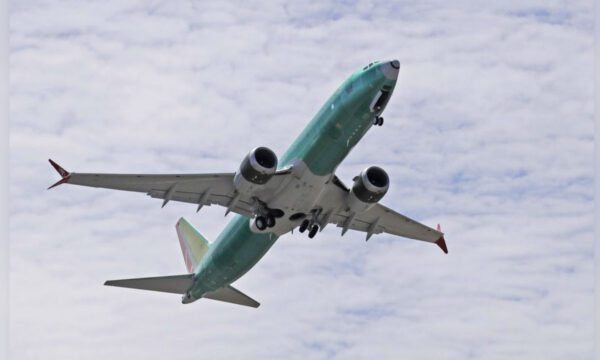Messages From Former Boeing Test Pilot Reveal 737 Max Concerns
DALLAS—A former senior Boeing test pilot told a co-worker that he unknowingly misled safety regulato..
DALLAS—A former senior Boeing test pilot told a co-worker that he unknowingly misled safety regulators about problems with a flight-control system that would later be implicated in two deadly crashes of the companys 737 Max.
The pilot, Mark Forkner, told another Boeing employee in 2016 that the flight system, called MCAS, was “egregious” and “running rampant” while he tested it in a flight simulator.
“So I basically lied to the regulators (unknowingly),” wrote Forkner, then Boeings chief technical pilot for the 737.

The exchange occurred as Boeing was trying to convince the Federal Aviation Administration that MCAS was safe. MCAS was designed at least in part to prevent the Max from stalling in some situations. The FAA certified the plane without fully understanding MCAS, according to a panel of international safety regulators.
Forkner also lobbied FAA to remove mention of MCAS from the operating manual and pilot training for the Max, saying the system would only operate in rare circumstances. FAA allowed Boeing to do so, and most pilots did not know about MCAS until after the first crash, which occurred in October 2018 in Indonesia. The plane was grounded worldwide in March after the second crash, in Ethiopia.
Boeing turned over a transcript of the messages to Congress and the Transportation Department late Oct. 17, and the reaction was swift and negative.
“We have received hundreds of thousands of pages of documents from Boeing, but not this one. This was intentionally withheld from us, which is absolutely outrageous,” House Transportation Committee Chairman Peter DeFazio, D-Ore., said in an interview Friday. He called it a smoking gun of Boeing wrongdoing.
FAA Administrator Stephen Dickson demanded an explanation from Boeing CEO Dennis Muilenburg, including why the company delayed several months before telling FAA about the messages.
“I expect your explanation immediately regarding the content of this document and Boeings delay in disclosing the document to its safety regulator,” Dickson wrote in a terse, three-sentence letter to Muilenburg. In a statement, the FAA said it “finds the substance of the document concerning” and is deciding what action to take in response.
Boeing turned over the transcript to the Justice Department earlier this year but gave it to Congress only this week in anticipation of Muilenburgs scheduled Oct. 30 testimony before DeFazios committee, according to a person familiar with the matter.
Boeing, in a prepared statement, said the transcript contained the communications of a former employee. Although Boeing didnt identify Forkner, he left last year and joined Southwest Airlines—the biggest operator of the Boeing 737.
Forkners lawyer, David Gerger, said that Forkner was indicating in messages to a colleague that the flight simulator was not working like the plane.
“If you read the whole chat, it is obvious that there was no lie,” he said. “Marks career—at Air Force, at FAA, and at Boeing—was about safety. And based on everything he knew, he absolutely thought this plane was safe.”
Separate Boeing documents that were disclosed Friday also outlined Forkners role in communicating with the FAA and removing mention of MCAS from pilot-training requirements for the Max. When the FAA agreed, that helped Boeing sell the Max by holding down the cost airlines would incur to retrain their crews.
In a November 2016 email to an FAA employee whose identity was blacked out, Forkner indicated he was traveling arouRead More – Source
